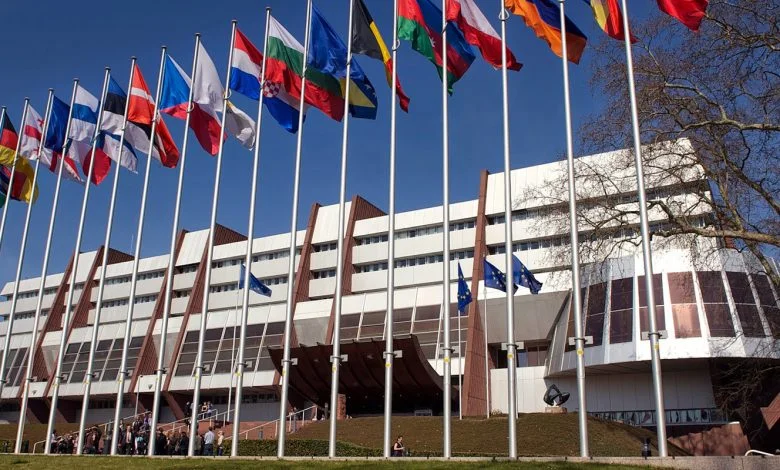
CoE Fourth Opinion on Protection of National Minorities
On June 26, Council of Europe’s Advisory Committee on the Framework Convention for the Protection of National Minorities released its fourth opinion on Georgia.
The Council of Europe’s Advisory Committee praised Georgian society’s general climate of support for minority rights, noting the country’s openness and respect for ethnic and religious diversity. The report notes that the monitoring period was marked by challenges, including the COVID-19 pandemic, regional conflicts and the Russian occupation of Abkhazia and the Tskhinvali region/South Ossetia, which hampered effective control and monitoring in these areas.
Despite the overall positive outlook, the Committee stressed the need for further measures to promote mutual respect and dialogue. Religious minorities face significant problems, in particular with regard to the restitution of property confiscated during the Soviet era and the recent appropriation of religious property. The privileged status of the Georgian Orthodox Church raises concerns about religious freedom and the social integration of minorities, the report notes.
Access to citizenship for national minorities remains problematic due to strict language requirements and other barriers. There is insufficient recognition of the contribution of minority cultures to Georgia’s cultural heritage. Long-term funding and the provision of premises, particularly for smaller minorities, as well as dedicated funding for the maintenance of cultural heritage monuments are needed, the report says.
According to the Opinion, challenges remain in minority language education, with inadequate curriculum content and poor quality teaching materials. The report says: “Textbooks in minority languages and for minority languages and literature continue to be imported from other states rather than being developed and published in Georgia, educational materials are of poor quality, and there is a lack of adequate teacher training in preschool, primary and secondary education.” Committee notes that the introduction of a bilingual education model from September 2023 “if implemented in full compliance with the protection of the linguistic rights of persons belonging to national minorities, could pave the way for solving a number of problems in the field of education and access to rights for persons belonging to national minorities, including their effective participation in all spheres of life.”
The Council of Ethnic Minorities and the Council of Religions facilitate dialogue with the authorities, but formalized consultation mechanisms are lacking. Minority participation in political life is limited, and the legal framework does not adequately ensure their representation.
Recommendations for Immediate Action
- Census Preparation: Authorities should prepare for the 2024 census by adopting a new form that allows multiple affiliations and open-ended responses. Recruitment of census interviewers from minority groups and comprehensive training are essential.
- Address Inequalities: Targeted measures are needed to address inequalities faced by minorities, particularly Armenians, Azeris, Kists, and Roma. These measures should involve close cooperation with minority representatives.
- Promote Trust and Respect: Authorities should promote trust and mutual respect for minorities through awareness-raising activities and efforts to combat stereotypes.
- Access to Worship: Ensure minorities have access to places of worship and legal protection. Decisions on new worship places should be transparent and non-discriminatory. Property restitution for religious communities should be expedited.
- Political Participation: The legislative framework should ensure adequate minority representation in elected bodies. Awareness campaigns about political participation rights should be conducted in minority languages.
Further Recommendations
- Implement Civic Equality Strategy: Authorities should fully implement the State Strategy for Civic Equality and Integration (2021-2030), including monitoring and evaluation in consultation with minority representatives.
- Support Minority Cultures: Provide stable funding to preserve and promote minority cultures, with transparent allocation procedures.
- Media Representation: Increase support for minority-language media and ensure their presence in public media.
- Topographic Signage: Restore traditional place names in minority languages and establish procedures for topographic signage in these languages.
- Education: Enhance curricula to include minority cultures and raise awareness of minority rights. Increase the number of preschool facilities in minority-populated areas and ensure quality teaching of Georgian and minority languages.
- Consultative Councils: Clearly define the roles of the Council of Ethnic Minorities and the Council of Religions and ensure their recommendations are considered in decision-making.
- Socio-economic Data Collection: Gather data on the socio-economic situation of minorities to design positive measures addressing disparities. Provide targeted support for minority women and youth and ensure Roma participation in socio-economic life.
The Council of Europe’s Advisory Committee has also published Georgian government’s comments on the reports findings.
Also Read:
- 15/11/2023 – CoE HR Commissioner Mijatovic Urges Georgian Authorities to Tackle Discrimination Against Minorities
- 04/02/2023 – Close, yet far: What does the NDI poll tell us about ethnic minorities?
This post is also available in: ქართული Русский